On Wednesday, November 16, the evening “The Planet in Mother’s Hands” was held at the State Kremlin Palace, dedicated to Mother’s Day. 5.7 thousand people were invited to this holiday - representatives of large families. Four Moscow families received state awards: two with the Order of Parental Glory and two with medals of the Order of Parental Glory.
From three or more
Today, 116.9 thousand large families live in Moscow, raising 290.6 thousand children. 85 mothers are raising 10 or more children (two families have 16 children each and three families have 15). It is noteworthy that six years ago there were almost half as many such families - only 65.7 thousand.
According to the law, a family with many children is considered to be one in which three or more children are raised (including adopted children, as well as stepchildren and stepchildren) up to 16 years of age, and if they are studying, up to 18 years of age.
Yes, for children up to three years receive monthly compensation in the amount of 675 rubles. For each child under 16 years of age (students under 18 years of age) a monthly compensation is also paid: for families with three to four children - 600 rubles, and for families with five or more pupils - 750 rubles for each child. And all the kids who study receive five thousand rubles a year from the city to buy clothes.
If parents are raising three or four children, then every month they receive 522 rubles to pay for utilities, and if they have five or more children - 1044 rubles. 230 rubles are allocated to pay for the phone. Families with five or more minor children are paid 900 rubles for things and toys.
Special measures social support are provided for families with 10 or more children. They are additionally paid:
- 750 rubles for each child under the age of 16 (for those studying full-time - up to 23 years);
— 10 thousand rubles for International Family Day and 15 thousand rubles for Knowledge Day.
In turn, mothers who give birth to 10 or more children are paid 10 thousand rubles a month.
To receive benefits in kind, you need to have a certificate of a large family of the city of Moscow, which is available at any “My Documents” government service center.
Targeted assistance
Low-income and large families Moscow also provides targeted social assistance. Products can be obtained either with a social certificate or in natural form.
As of October of this year, families were issued more than 44.97 thousand certificates totaling more than 44.97 million rubles (one certificate is equal to a thousand rubles). In addition, five thousand food packages will be delivered to social organizations this year. And for Mother’s Day, 40 thousand holiday packages will be given to low-income large families.
On March 1, a new social experiment began in the capital: families in difficult life situation, receive children's goods using electronic certificates. By October, 19,650 certificates worth 39.3 million rubles had already been sold in Moscow stores (one certificate corresponds to two thousand conditional points, or two thousand rubles). In total, 37,171 certificates will be issued this year for a total amount of 74.342 million rubles. Moreover, all families participating in the experiment can choose how to receive targeted assistance— through electronic certificates or in kind.
So, this year the city purchased 25.1 thousand units different clothes and shoes for children from low-income families.
Families in difficult life situations are cared for not only at the expense of the city budget. For example, the work of 43 additional collection, delivery, and exchange points is financed from extrabudgetary sources. As part of various charity events, 50.6 thousand different items were collected this year - children's clothing and shoes, toys, books, as well as bicycles, cribs, strollers, sports equipment, stationery and school supplies. 32.4 thousand of them were given to needy families.
In addition, it is developing city program“Family helps family”, which is based on mutual assistance. Any family that is willing to offer any support or service can become a participant in the program. Project members exchange experiences, conduct joint classes and walks, organize clubs and leisure evenings.
There are also citywide charity events, such as “Let’s help a graduate prepare for the school prom!”, “Family helps family: getting ready for school!” and "Wish Tree".
To support Moscow large families, a regional public organization “Association of Large Families of the City of Moscow” was created. In two years, she managed to unite large families in all districts of Moscow and establish interaction with authorities. Now the organization includes more than 16 thousand large families in the capital.
Support for young and low-income families
Young Moscow families (in which both spouses are under 30 years old) are paid 14.5 thousand rubles monthly in addition to the federal benefit. In the event of the birth of a third child, parents are also entitled to an additional one-time benefit, the amount of which is 10 subsistence minimums (currently 15,382 rubles). If three or more children were born at the same time, parents receive 50 thousand rubles per family.
Low-income families with an income of no more than 15,382 rubles can count on monthly allowance for each minor child. Single mothers receive 2.5 thousand rubles for children under the age of one and a half years and from three to 18 years old, and 4.5 thousand rubles for children from one and a half to three years old.
Children of military personnel, as well as those whose parents do not pay child support, are also entitled to benefits. Parents of children under one and a half years old and from three to 18 years old are paid 1.9 thousand rubles, and for children aged from one and a half to three years old they are paid 3.3 thousand rubles.
Ordinary families are also entitled to payments:
- for children under the age of one and a half years and from three to 18 years - 1.5 thousand rubles;
- for children aged from one and a half to three years - 2.5 thousand rubles.
Student families in which both parents or a single mother study full-time are paid an increased monthly compensation to compensate for the increase in food prices; for children under three years old - 1,875 rubles.
Help for single mothers
Single mothers, in addition to various cash payments, are also provided with in-kind assistance. In addition, for each child under 16 years of age (and if he is studying, up to 18 years of age), a monthly allowance is paid, the amount of which depends on the average per capita income of the family:
- with income below 15,141 rubles - 750 rubles;
- with income above 15,141 rubles - 300 rubles.
At the same time, all single mothers receive 675 rubles a month until the child turns three years old.
Support for families with special needs children
Particular attention in the capital is paid to social support for families raising children with disabilities. In addition to federal payments, such families are entitled to various benefits and in-kind assistance from the city.
Until the child is three years old, parents receive 675 rubles a month for food. In addition, a monthly compensation of six thousand rubles is paid. Unemployed parents, as well as working single mothers or fathers, widows and widowers, divorced parents, one of the parents in a large family, guardians or foster parents of a disabled child, and foster carers have the right to it.
Children with disabilities who have lost their breadwinner are entitled to monthly compensation in the amount of 1,450 rubles.
Good day! Today I want to touch on the topic: what payments are due to first-graders for low-income and large families. Most regions of Russia are still faced with problems of low-income families. Regardless of the place of residence, be it a big city or a small village, the problem of the poor, large families, as well as families in which the child is raised by one person remains relevant to this day. These families have every right to child benefits from the state.
One of the categories for such benefits is assistance to parents whose child starts first grade on September 1st. Who can apply for such benefits and for what amount.
Who is entitled to receive benefits for a first-grader?
This type of financial assistance is intended for low-income families who, for some reason, are not able to provide their child with all the necessary things to enroll in school. Unfortunately, some people from the population in many regions receive wages less than the subsistence minimum. And with such a salary, it is simply impossible to assemble a schoolchild. The following families can also count on first-grader payments:
- Family on a small budget
- Family consisting of two persons (child - mother or father)
- Family with two or more children
- A family whose father was sent to the army
However, the state still does not look at the composition of the family, but at the cost of living per person. It is very easy and simple to calculate, you need to add up the total income of each person in the family and divide by the number of people in the family, the result will be the minimum cost of living for one person. And if it turns out to be lower than the cost of living in your region, then you have the right to apply for help from the state for a first-grader.
Types of benefit payments to first-graders
If your family is low-income and low-income, then there are two main types of child benefits:
1. One-time assistance when a child enters 1st grade
2. Monthly cash assistance for the purchase of school accessories
Regarding type number one, all types of families in need of financial assistance can receive it. This type of payment provided 1 time and the amount depends on the region.
The fact is taken into account that if more than one child goes to 1st grade, then the allowance is issued for each child separately
To receive such benefits, a parent (mother or father) or guardian must contact the department of benefits and social payments at your place of residence and provide the following documents:
- Personal passport
- Certificate of family composition
- A certificate stating that this benefit has not been received previously. Needed for those whose parents lived in another city or region
- A certificate from the school confirming that the child actually went to school this year from the first of September to grade 1
- Provide details to which payments will be transferred
This application is being considered within six months from the moment the child entered 1st grade
But this is just a one-time benefit, and the child needs to learn and learn further. How can this be? And for this there is a second type of benefit - monthly. Specially for school purchases accessories. This type is naturally several times smaller. To receive such benefits, you should also contact the department of benefits and social payments and provide the following documents:
- Passport plus copy
- A certificate confirming that you are a large family, as well as a certificate of income plus copies
- Child's birth certificate
- Certificate of admission to 1st grade
- If documents are collected and brought by an authorized representative, then he must provide a passport and a copy
- If the child is being raised by a guardian, then he needs to bring a certificate confirming that he is in fact a guardian
The review period is reduced compared to the first option. It is advisable to submit documents no later than December 31 of the current year.
Yes... To our great regret, but the fact remains that many families throughout Russia and beyond, survive from penny to penny, live from paycheck to paycheck and can barely make ends meet, but children need to be educated, raised, fed and dress, and how you will live here and even get your baby ready for school. The state meets such families halfway and provides these types of benefits. Therefore, if the budget is too tight for you and you are not able to get your children into 1st grade on your own, know that there are payments for students entering 1st grade! And that's all for me! Although no! I completely forgot))) Let's watch the video!!!
Best regards, Alexey!
Raising children nowadays is difficult and expensive, especially if there are many of them. Therefore, the state is taking a number of measures to support families raising several children. They are provided with preferences at various levels: federal and regional. Legislation is constantly changing. Let's look at what benefits large families can count on in 2017 in various regions of the federation.
Legislative framework
The main document on which the legislator relies when working with social units in which many children are being raised is considered to be Decree of the President of the Russian Federation No. 431 of 05.05.1992 “On measures for social support of large families.” The last changes were made to it on February 25, 2003. This document instructs regional legislative assemblies to establish the status of families that will be considered large. That is, it itself does not contain criteria.
Currently, in most regions, a seed is recognized as “multiple” if it contains at least three minor offspring (there is an additional condition):
- relatives;
- reception;
- adopted.
The family retains its status until the eldest child reaches the age of 24, if he is:
- in the ranks of the armed forces (conscript service);
- on training (in person).
Status confirmation
 In order for payments to begin, the family must obtain documents confirming their rights. Payments to large families in 2017 are calculated on the basis, among other things, of a certificate. A sample of it is being developed by the regions. But the order of receipt does not vary much. To secure your status, you need to contact your local social support department.
In order for payments to begin, the family must obtain documents confirming their rights. Payments to large families in 2017 are calculated on the basis, among other things, of a certificate. A sample of it is being developed by the regions. But the order of receipt does not vary much. To secure your status, you need to contact your local social support department.
You should have the following documents with you (originals and copies):
- parents' passports, including a copy of the registration page;
- certificates for offspring proving the fact of their registration in the region;
- data on establishing paternity (if available);
- for young people who have crossed the 16-year-old threshold, a certificate from educational institution;
- when a family raises children from previous marriages, then additional evidence is provided:
- about marriage;
- about divorce;
- about the death of one of the parents;
- court decision on recognition as missing;
- about deprivation of parental rights and more.
- 3x4 photos of both parents.
Guardians provide a decision on establishing guardianship (trusteeship).
Other documents may be required, the list of which is approved by regional authorities. It is advisable to inquire about its contents with the local administration.
Why do you need a certificate?
 This document confirms the family’s right to a number of benefits established by regional authorities. It is usually valid for one year. The expiration date of his term of office is indicated in the document itself. After it occurs, you need to go through the registration procedure again.
This document confirms the family’s right to a number of benefits established by regional authorities. It is usually valid for one year. The expiration date of his term of office is indicated in the document itself. After it occurs, you need to go through the registration procedure again.
The certificate is extended until there are less than three minor children left in the family. That is, the eldest:
- will celebrate his 18th birthday;
- complete the educational process;
- will return from military service.
Federal support
 State assistance applies to all parents. They are guaranteed the following payments:
State assistance applies to all parents. They are guaranteed the following payments:
- One-time birth benefit in the amount of 16,350.33 rubles.
- Monthly payment for child care up to 1.5 years:
- for the first - in the amount of 3065.69 rubles;
- for the second and subsequent ones - 6131.67 rubles.
- Maternity capital.
Do you need information on this issue? and our lawyers will contact you shortly.
Maternity capital
This type of help is installed Federal law No. 256-FZ dated December 29, 2006. According to this document, the family receives a certificate for a certain amount for the birth of the second and subsequent children. That is, the rule applies to large families, including.
The amount of maternity capital in 2017 is 453,026 rubles. It must be completed at your local branch. Pension Fund(PF). To do this, you must provide a certificate of registration of the baby and the passport of the applicant parent.
Download for viewing and printing:
In case of death of a newborn, a certificate is not provided. In addition, it can only be used for the following purposes:
- purchasing an apartment (house);
- payment for education;
- increasing the size of the pension.
One-time cash payment to families with many children
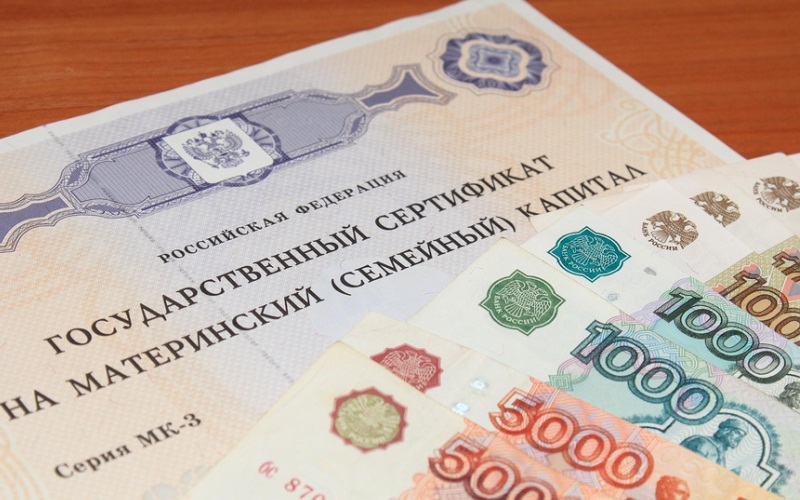 Decree of the President of the Russian Federation No. 606 dated 05/07/2012 instructs individual regions to develop and implement a procedure for providing large families with a one-time cash payment (CAP). It is charged for each child. The size of the monthly allowance depends on the average cost of living in the region. And the criterion for developing these measures is the indicator of population increase.
Decree of the President of the Russian Federation No. 606 dated 05/07/2012 instructs individual regions to develop and implement a procedure for providing large families with a one-time cash payment (CAP). It is charged for each child. The size of the monthly allowance depends on the average cost of living in the region. And the criterion for developing these measures is the indicator of population increase.
The decree obliges to provide support in those regions of the federation where the birth rate is low compared to the rest. In 2017, EDV is accrued in 42 regions Russian Federation. Families with a third (and subsequent) baby can receive it.
Download for viewing and printing: EDV is provided only low-income families. The income per person in them must be below the average income established by the region.
How to get EDV
In order for the money to start flowing into the account, parents are required to contact the local social support office. The following documents should be provided there:
- information about family composition and income;
- children's birth certificates;
- copies of parents' passports.
Above are the basic documents. Social assistance specialists may also require other documents confirming the status of a low-income family.
EDV is prescribed until the child reaches 3 years of age. The following may equally apply for it:
- physical parents;
- adoptive parents;
- guardians.
Dear readers!
We describe typical ways to resolve legal issues, but each case is unique and requires individual legal assistance.
To quickly resolve your problem, we recommend contacting qualified lawyers of our site.
Regional preferences for large families
In the constituent entities of the federation, governments are developing their own measures to support large families and low-income citizens. They differ in conditions, methods of paying financial assistance, and others. However there is general rules approach to solving this problem. They are:
- support is provided to families who are unable to cope with the hardships of the current times on their own;
- parents raising a large number of children perform an important function for the development of the state;
- regions issue targeted assistance, that is, the right to it must be documented.
Compensation for accommodation
 In some regions, payments related to rising inflation have been approved. They compensate for the loss of income for people with low wages who are raising young people. According to regional regulations, families are guaranteed the following payments:
In some regions, payments related to rising inflation have been approved. They compensate for the loss of income for people with low wages who are raising young people. According to regional regulations, families are guaranteed the following payments:
- To pay for housing and communal services (HCS). On average it is 30% of the invoice amount. In some regions it can reach 50%, for example, in the Republic of Crimea.
- Compensatory payments for food. They are issued for children under 16 (in some cases 18) years old, provided that the young person is receiving education. Charges depend on the standard of living in the region.
- For example, in the capital in 2016, families with 3-4 children received 522 rubles each, and if there were more than five offspring, then 1044 rubles each.
- Payments for food are also compensatory. They are available in some regions of the federation for children under three years of age. For example, in Moscow, additional support measures have been developed for families with ten or more children. They are:
- by September 1, parents can receive 15,000 rubles. to prepare offspring for school;
- To international day families are given a gift in the amount of 10,000 rubles;
- a mother who has given birth to 10 or more children is given an additional 10,000 rubles to her pension.
Awards from the state
 There is another type of support. This is the rewarding of parents with many children with badges of honor or state orders. In addition to moral encouragement, some are accompanied by the payment of a certain, considerable amount.
There is another type of support. This is the rewarding of parents with many children with badges of honor or state orders. In addition to moral encouragement, some are accompanied by the payment of a certain, considerable amount.
- Order of "Parental Glory" It is given to six children raised at least until they are 8 years old. It is entitled to a payment of 100 thousand rubles.
- Medal "Parental Glory". This distinction is awarded to citizens who have raised 4-7 children. No payments are provided.
- There is also the Order of the Holy Blessed Prince Peter and Princess Fevronya, Murom Wonderworkers.
Regional payments for the third child
In some regions where the birth rate is poor, their own programs have been adopted to stimulate it. In them, along with maternal capital another benefit is issued for the birth of the third offspring.
- The government of the Smolensk region became a pioneer in this area. Since 2008, the region has established a payment for the birth of a second and subsequent children in the amount of 163.3 thousand rubles. (data for 2016).
Help to prepare for school
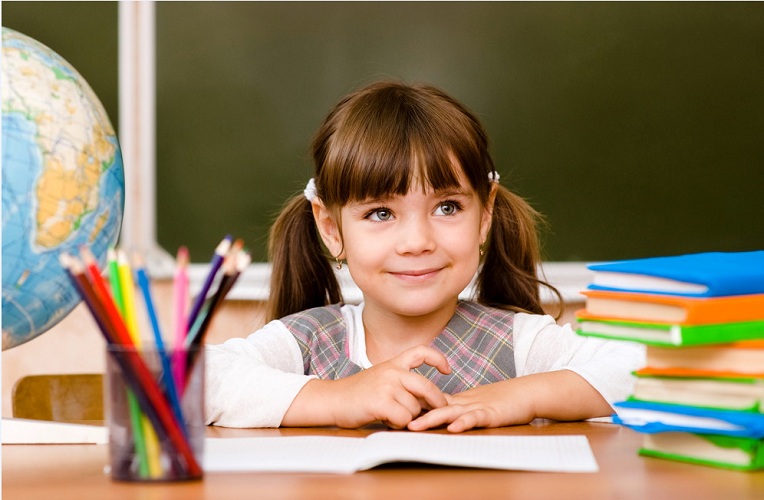 If there are several students in a family, then their equipment for the start of classes places a heavy burden on the parents’ wallet. Moreover, these events take place immediately after summer holiday. Therefore, in the regions, assistance is provided to large families precisely for this purpose.
If there are several students in a family, then their equipment for the start of classes places a heavy burden on the parents’ wallet. Moreover, these events take place immediately after summer holiday. Therefore, in the regions, assistance is provided to large families precisely for this purpose.
Guardians and adoptive parents can also apply for help preparing children for school.
In the capital in 2017, 5 thousand rubles will be allocated for these purposes. If there are more than 10 small citizens in the family, then the amount increases to 15 thousand rubles.
The amount of the benefit does not depend on the actual number of students. The status of a large family is important.
St. Petersburg supports families with smaller payments for the purchase of uniforms. The amount is only 1.5 thousand rubles. If a given unit of society is recognized as low-income, then it is entitled to 2.5 thousand rubles.
Similar programs operate:
- V Nizhny Novgorod: here 500 rubles are given for each first-grader;
- in the Chelyabinsk region - 15 thousand rubles. planned to support low-income families with many children;
- The Novosibirsk government issues 5 thousand rubles. for a first-grader and 10 thousand rubles. for a freshman. All other students brought up in large (at least three children) families are entitled to 300 rubles.
Other support measures at the regional level
Various types of benefits are included in local programs. In 2017, they will be provided in the following cases:
- if a child is sick, he is entitled to free medicines (usually up to 6 years);
- acquisition school supplies at the expense of the budget;
- discounts on trips to camps and sanatoriums for medical reasons;
- payment for part of the travel to the place of health restoration;
- financial assistance in difficult living conditions.
How to get regional support
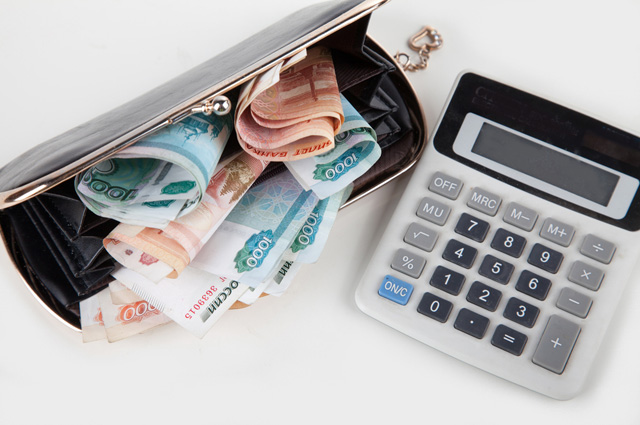 You should contact your local social services office for help. You need to take with you all the documents confirming your category and apply for a preferential certificate (the procedure is described above).
You should contact your local social services office for help. You need to take with you all the documents confirming your category and apply for a preferential certificate (the procedure is described above).
After receiving the paper, the citizen should come to social assistance and write statements, for example, before Knowledge Day or in other specific cases. Care must be taken to ensure that official recognition of status is not lost due to delays in re-issuing documents.
When registering your status, you should write down all the benefits provided to large families at the regional level, taking into account the dates of application. Then no preferences will pass by the recipients of their destination - children.
Since the beginning of 2017, the daily allowance for large families has been increased
According to the legislation of the Russian Federation, payments to large families for first-graders are provided. Such families include those who have three or more minor children. The allowance is intended to help the child go to school, buy him office supplies and other things necessary for his studies.
Who has the right to apply for funds, and what financial assistance is available to future first-graders? Let's look further.
Financial assistance to parents of first-graders: who is entitled to
Financial support from the state is provided to large families in which one or several children are entering first grade. This type of social support from the state is also provided low-income families, in which parents cannot provide the first-grader with everything necessary for school. Who is entitled to receive benefits for first-graders:
- families with low income;
- a parent who is temporarily raising children alone due to the fact that the other is in military service;
- single-parent families where there is only one parent;
- parents raising more than two minor children.
Types of financial assistance for first-graders for large families
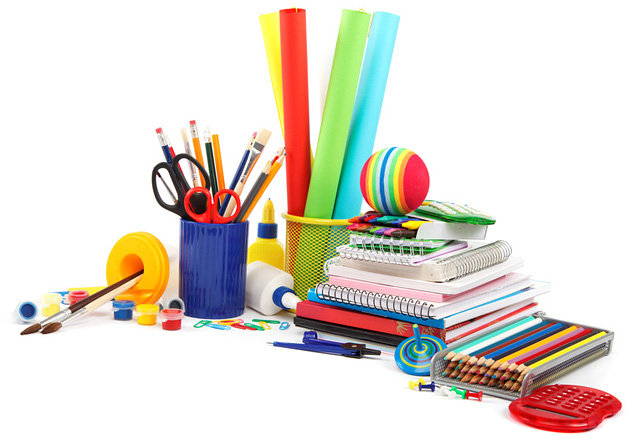 If the family is low-income, it is entitled to financial assistance.
If the family is low-income, it is entitled to financial assistance.
- a one-time social payment for preparing a child for first grade;
- cash benefits for the purchase of office supplies, which are accrued every month.
The first type of financial assistance is provided to the family once, but for each of the children, in the years when they started school. If several children go to first grade in the same year, then the parents of first-graders receive financial assistance for each of them. The amount of such support varies from 1500 to 14700 rubles. based on your region of residence.
In each city it is established depending on the capabilities of its budget, and must be regulated by a certain regulatory act. It will specify the conditions for receipt, terms and amount of payments for citizens who live in this city.
The second type of financial assistance is one-time payments for the purchase of various office supplies. The amount of such payments is much lower than the benefit before the start of first grade, but it is paid every month.
The basis for receiving such payments is the Decree on Regional one-time benefits in a certain region. The funds paid to prepare children for school have a specific purpose, but parents do not have to submit reports to the authorities.
Download for viewing and printing:
The following are entitled to receive benefits for first-graders:
- one of the parents of a first-grader;
- adoptive parent;
- one of the guardians.
List of required documentation
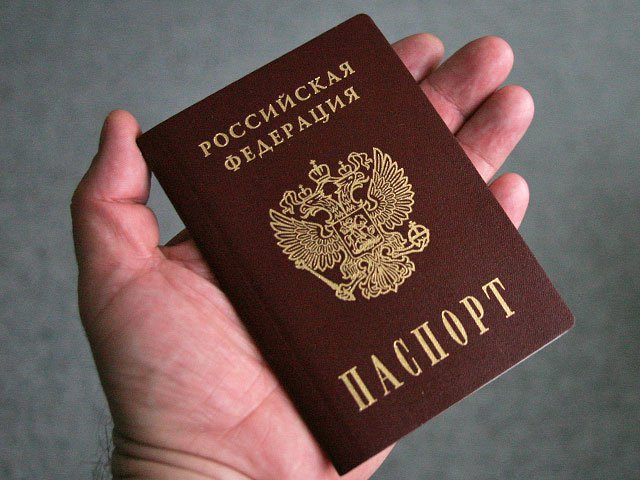 To pay a cash benefit to a large family when a child enters first grade, you must contact the department of benefits and other documents with a certain list of documents. social payments at your place of residence. To receive payment to a first-grader, you must provide:
To pay a cash benefit to a large family when a child enters first grade, you must contact the department of benefits and other documents with a certain list of documents. social payments at your place of residence. To receive payment to a first-grader, you must provide:
- statement;
- passport of the person submitting the claim;
- a certificate containing information about family composition;
- birth certificate of the child for whom it is required cash assistance, as well as other children under age;
- a certificate from the educational institution proving that the child has entered their education;
- bank details where financial assistance should be transferred.
In cases where one of the family members is registered in another city, you may need a paper from the branch of the Ministry of Social Development located in this region stating that the benefit was not paid there.
You don’t have to submit documents exactly by September 1st; the main thing is to submit them between August 1st and December 31st. Even if the parents bought it for the child themselves school uniform and all other items, money will be returned as compensation.
In order to receive monthly assistance in the form of cash payments to the office, you need to provide:
- parent's passport;
- child's birth document;
- a certificate containing information about the financial status of the family;
- a document certifying the child’s enrollment in school.
When a legal representative brings documents to the authorities, he must provide his passport and a power of attorney confirming his authority. If the child is under guardianship, the guardians must bring a statement about this.
When making monthly payments, you must apply no later than December 31, the year in which the first-grader went to school.
Dear readers!
We describe typical ways to resolve legal issues, but each case is unique and requires individual legal assistance.
To quickly resolve your problem, we recommend contacting qualified lawyers of our site.
Algorithm for applying for child benefits at the beginning of the school year
 To receive lump sum payment For a child who went to school for the first time, you need to submit an application with a list of documents to the public protection authorities located at your place of residence. They can be submitted:
To receive lump sum payment For a child who went to school for the first time, you need to submit an application with a list of documents to the public protection authorities located at your place of residence. They can be submitted:
- by appearing in person at a social service institution;
- by registered mail, with notarized copies sent.
Department employees social protection The population has the right to demand that the applicant provide additional documents, as well as request information necessary for registration from other authorities. Each citizen has his own personal file in which all the papers submitted by the person are stored.
A positive or negative decision on the transfer of this benefit is made by the head of the authority no later than 10 days. When a decision is made to refuse financial assistance, all documents are returned to the applicant and the reason is explained. negative decision. If a satisfactory decision is made, the money is transferred to the citizen’s bank account within 5 days from the receipt of funds from the budget.
Benefits will not be accrued in the following cases:
- moving to another region (parents will have to register it at their new place of residence);
- upon loss of rights to provide social support (deprivation of parental rights, etc.);
- death of the person who was entitled to the benefit.
 Any citizen can find out the specific amount of this assistance by contacting the social protection authority of their city or leaving a request on the website on the Internet. In it you need to outline your family financial status, how many children you have, etc. Leave your questions, for example:
Any citizen can find out the specific amount of this assistance by contacting the social protection authority of their city or leaving a request on the website on the Internet. In it you need to outline your family financial status, how many children you have, etc. Leave your questions, for example:
- what kind of assistance from the state is provided for your family;
- procedure for processing cash payments and benefits;
- the amount of financial assistance in a particular region;
- legal norms governing their payments.
This will allow you to imagine the first time necessary documents, find out the registration procedure, and also familiarize yourself with the regulations on benefits that apply in your city.
Thousands of families across Russia need to pay for basic needs for first-graders. In 2017, as in 2016, payments to large families for a first-grader in different regions differ significantly, sometimes by several thousand rubles.
How to get benefits for parents of a first-grader: video
The problem of low-income families, unfortunately, remains relevant for many regions of the Russian Federation. Families with low incomes, with the absence of one of the parents, large families... Regardless of the region of their residence, be it Moscow, Krasnodar region, Novosibirsk, etc., the state provides some assistance to all these people.
One of its types remains payments to parents whose children go to school for the first time on September 1. Who has the right to apply for funds and how much money is currently due to future first-graders?
Who can receive payments
This type of financial assistance is intended for low-income families who, for one reason or another, do not have the opportunity to provide their child with everything necessary. Unfortunately, there are still people in our country who earn less than the living wage, and getting a first-grader to school for some families simply seems like an impossible task. The current legislation clearly defines families that can be classified as low-income. In particular, the following may qualify for “children’s” payments:
- low-income parents;
- single-parent families in which a child is raised by only one person;
- parents who are raising more than two children;
- family in which the person was sent to military service according to the call.
However, to determine such a concept as need, it is not the composition of families that is considered, but primarily their income per person. In order to determine whether your family meets this criterion, it is enough to carry out a basic mathematical operation: sum up the income of all family members and divide it by the number of people. If the final result is below the subsistence level established in the region, then your family is considered low-income, and you can qualify for appropriate social benefits.
Types of financial assistance for first-graders
If your family income is low and you need social protection, current legislation provides for two types of different financial assistance. In particular, large families in 2016 and 2017 can count on the following types of assistance:
- One-time financial assistance at the time a preschooler enters first grade.
- Monthly payments for the purchase of office supplies.
As for the first type of material assistance, all needy segments of the population can receive it. Such payments are made only once, their size can be very different for different regions. Moreover, if several children go to school at once, money is awarded for each separately. In order to receive such financial assistance, at least one of the parents, guardians or guardians of the child must contact the department of benefits and social payments at the place of residence, submitting the following documents:
- own passport;
- birth certificate of a first-grader;
- certificate of family composition;
- document from regional office Ministry of Social Development, which confirms that similar payments in favor of the child were not made in another district or city. This will be relevant if anyone from the family in which the first-grader lives is registered at a different address;
- a certificate from a school or other institution confirming that the minor has entered 1st grade from the current year;
- details to which financial assistance will be transferred.
As for the application deadline, you don’t have to rush to collect all the necessary documents by September 1st. Submission of the necessary papers can be completed within 6 months from the date of commencement of studies.
However, this money is only a one-time help, and the child will have to study for a long time. He needs a huge number of various stationery items, the purchase of which can also become a real problem for parents. That is why the second type of financial assistance was established, namely payments for the purchase of stationery for the child. It is made monthly, but its size, of course, is significantly lower than that of a one-time payment. Low-income and large families can receive them, and they also need to be applied to the department of benefits and social payments in the region. Regarding necessary documents– the list looks like this:
- passport (original and copy);
- a document confirming the large number of children and/or a certificate of family income (original and copy);
- birth certificate;
- a certificate stating that the minor was admitted to first grade;
- if the document is brought by an authorized representative, he must present a passport and confirm his authority;
- if children do not live with their parents, but with guardians, it is also necessary to bring an extract from the relevant authorities confirming this fact.
Deadlines for applying to in this case slightly less and must be applied no later than December 31 of the current year.



